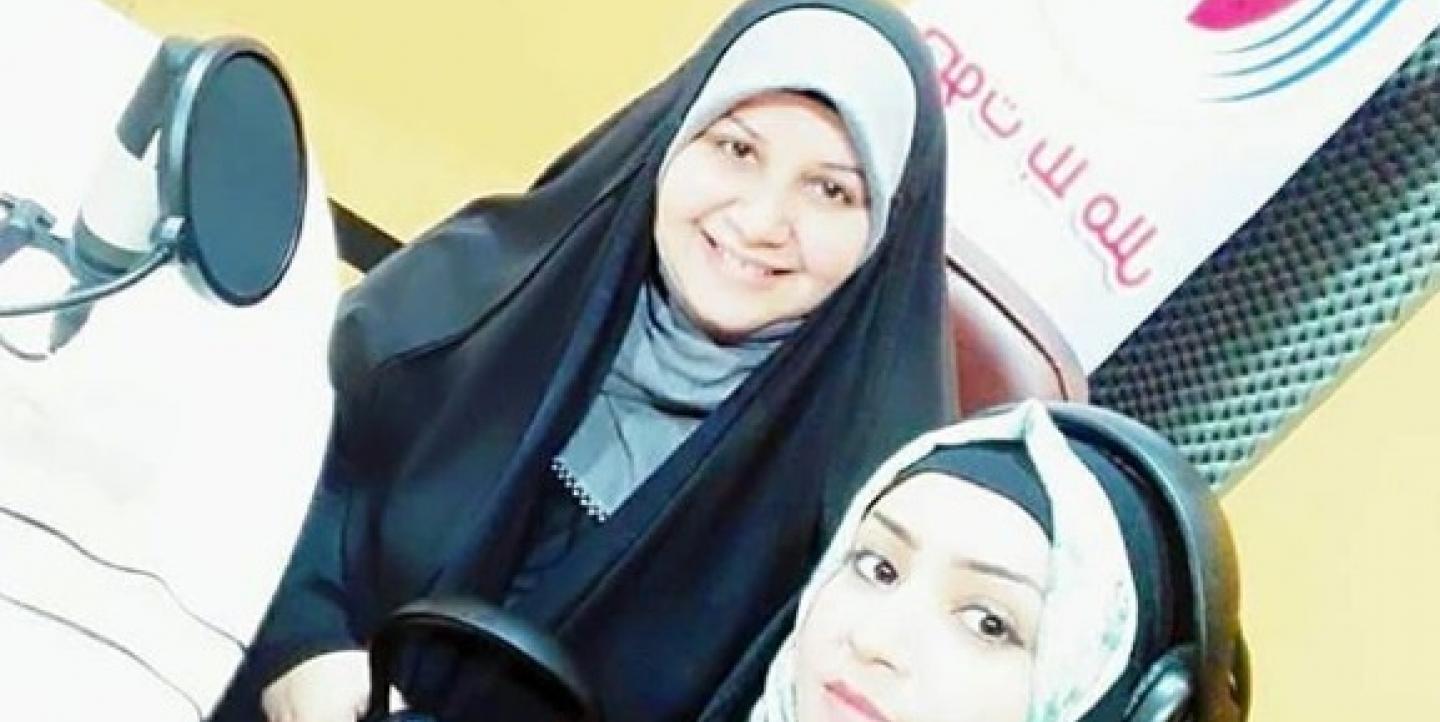Each month, IJNet features an international journalist who exemplifies the profession and has used the site to further his or her career. You can nominate yourself, or someone you know here.
Manar Abdul Amir Al-Zubaidi is an Iraqi journalist whose publication addresses women's issues, highlights the role of media in combating violence against women and prepares reports about minorities.
Al-Zubaidi works in difficult circumstances due to the ongoing conflict and instability in Iraq. Despite these challenges in the Iraqi women's media sector, she won third place in IJNet's Mentoring Center for digital media entrepreneurs, which is conducted by the International Center for Journalists (ICFJ).
Through IJNet, Al-Zubaidi obtained training opportunities like the MENA Mentoring Center and working with Arab Reporters for Investigative Journalism (ARIJ). She used IJNet to create a distinguished and influential team of female journalists that help her highlight the role of Iraqi women in various fields and document their inspiring stories through her online publication, “Al-Manar News.”
IJNet spoke to Al-Zubaidi about her experience as a woman journalist reporting in a conflict zone.
IJNet: How did you decide to become a journalist?
Al-Zubaidi: I believe that journalism is an authority and a mission. It is [more than] what certain people describe as a way to transmit events and information to the public. I decided to become part of this authority that must take responsibility. I have specialized in women's journalism and increased my influence to be the voice of women in a masculine-dominated country.
How did you first hear about IJNet and what opportunities did you discover through the network?
I discovered IJNet through my colleague who found an opportunity to travel and work outside of Iraq through the site. He guided me to the website. Since then I have followed the opportunities and articles that IJNet posts, and learned a lot from them.
As an Iraqi woman journalist, I have achieved my goal through IJNet. I dreamt about the establishment of a successful independent media outlet that specializes in women's affairs, where women journalists work to highlight the role of women in society, especially in light of the marginalization of women in the Arab world.
I saw the announcement for the MENA Mentoring Center program advertised on IJNet. I was accepted to the program, through which I was able to establish "Al-Manar News" to publish stories, issues, reports, investigations, videos, news and articles that support Iraqi women.
I received intensive training and continuous follow-up from program manager Madonna Khafaja, professional trainer Mohammad Al Qaq and professional mentor Ali Ghamloush. I became the first Iraqi journalist to establish a media outlet accredited by the Iraqi Journalists syndicate on women's affairs. I was also able to participate in The Arab Reporters for Investigative Journalism Network (ARIJ) conference in 2017 thanks to IJNet. Their support did not stop at that and I had the opportunity to write for the IJNet website. I have published many articles that provide information to journalists in the Arab world, which contributed to the sustainability of my project Al Manar.

Which story has been your favorite to cover?
I have published many articles about journalism education, but the article that I wrote and was most influenced by is "Iraqi women journalists who have achieved their goals through IJNet." In the article I shared our experience with the network and the most important steps that helped us succeed, despite the challenges and obstacles in Iraq.
You mentioned before that it’s difficult to be a woman journalist in Iraq. What challenges have you encountered?
Iraqi women journalists face many difficulties, the most important is the lack of job opportunities in media institutions, since most media are directed and owned by partisan or political parties. The dominance of masculinity also poses many challenges for female journalists, creating social constraints that reduce women’s access to information and resources. In addition, the absence of a safe and appropriate work environment as a result of the security situation, notably the targeting of journalists through threats, intimidation and kidnapping.
I encountered — and still do — some difficulties preparing articles and stories through the Al-Manar website. Iraqi society rejects the media content of issues related to customs and traditions, as well as bold and sensitive topics that relate to incest or child marriage.
Our limited financial resources are often an obstacle as well, especially if the investigation requires working in rural regions or conflict areas because we need multiple means of transportation and additional equipment to accomplish the mission and maintain our personal safety.
What advice do you have for young, emerging female journalists?
Never give up on your dream and be patient, because patience is the key to success. Every journalist who has a project that they want to achieve must continue to struggle, work and plan.
I also advise all women journalists seeking jobs, trainings or opportunities to follow IJNet, where they can [find resources and opportunities] to develop themselves.
Images courtesy of Manar Al-Zubaidi's Instagram account.


